
China just played a trump card in the chip war. Are more export curbs coming?
A trade war between China and the United States over the future of semiconductors is escalating.
2023-07-04 18:21

The world's shortest IQ test will reveal how average your intelligence is in 3 questions
IQ tests offer a formula that allows you to compare yourself to other people and see how average (or above average) your intelligence is. The Cognitive Reflection Test (CRT) is dubbed the world’s shortest IQ test because it consists of just three questions. It assesses your ability to identify that a simple problem can actually be harder than it first appears. The quicker you do this, the more intelligent you appear to be. Here are the three questions: 1. A bat and a ball cost £1.10 in total. The bat costs £1.00 more than the ball. How much does the ball cost? 2. If it takes five machines five minutes to make five widgets, how long would it take 100 machines to make 100 widgets? 3. In a lake, there is a patch of lily pads. Every day, the patch doubles in size. If it takes 48 days for the patch to cover the entire lake, how long would it take for the patch to cover half of the lake? Sign up to our free Indy100 weekly newsletter Here is what a lot of people guess: 1. 10 pence 2. 100 minutes 3. 24 days These answers would be wrong. When you're ready, scroll down for the correct answers, and how you get to them: 1. The ball would actually cost 5 pence or 0.05 pounds If the ball costs X, and the bat costs £1 more, then it will be: X+£1 Therefore Bat+ball=X + (X+1) =1.1 Thus 2X+1=1.1, and 2X=0.1 X= 0.05 2. It would take 5 minutes to make 100 widgets. Five machines can make five widgets in five minutes; therefore one machine will make one widget in five minutes too. Therefore if we have 100 machines all making widgets, they can make 100 widgets in five minutes. 3. It would take 47 days for the patch to cover half of the lake If the patch doubles in size each day going forward, it would halve in size going backwards. So on day 47, the lake is half full. In a survey of almost 3,500 people, 33 per cent got all three wrong, and 83 per cent missed at least one. While this IQ test has its shortcomings – its brevity, and lack of variation in verbal and non-verbal reasoning - only 48 per cent of MIT students sampled were able to answer all three correctly. Have your say in our news democracy. Click the upvote icon at the top of the page to help raise this article through the indy100 rankings.
2023-07-04 18:20

Volta introduces to the American market the newest Volta Mower S23.
LAKE COMO, Italy--(BUSINESS WIRE)--Jul 4, 2023--
2023-07-04 17:24

Google Set to Hire Former Apple Executive as India Policy Head
Alphabet Inc.’s Google is set to appoint a manufacturing and policy veteran as its top government affairs executive
2023-07-04 16:51
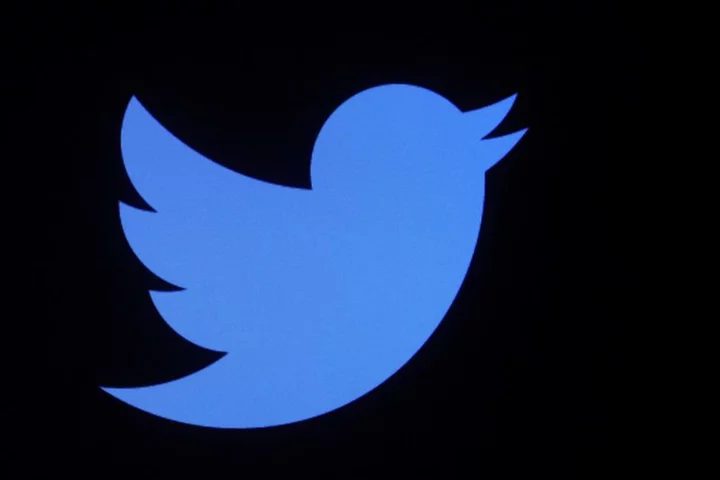
What does Twitter 'rate limit exceeded' mean for users?
(Reuters) -Elon Musk's Twitter has put a temporary limit on the number of tweets that users can see each day,
2023-07-04 16:28

Japan Dreams of AI, Overtaking Nvidia and Universal Basic Income
Japan is laying the groundwork to become home to some of the world’s top companies in artificial intelligence,
2023-07-04 15:58

Why isn’t Twitter working? How Elon Musk finally broke his site – and why the internet might be about to get worse
It started like any other outage: unexplained error messages that told users they had hit their “rate limit”, and Twitter posts refusing to load. But as the weekend progressed, it became clear that these weren’t just any old technical problems, but rather issues that could define the future not only of Twitter but of the internet. Elon Musk took to Twitter on Saturday and announced that he would be introducing a range of changes “to address extreme levels of data scraping [and] system manipulation”. Users would only be able to see a limited number of posts, and those who are not logged in wouldn’t be able to see the site at all. That decision triggered those error messages, since users were hitting the “rate limit” that meant they were requesting too many posts for Twitter to be able to handle. The new limits – apparently temporary, though still in effect – meant that users were being rationed on how many tweets they were able to see, and would see frustrating and unexplained messages when they actually hit that limit. In many ways it was yet another perplexing and worrying decision by Mr Musk, whose stewardship of Twitter has lurched from scandal to scandal since he took over the company in October last year. (He appointed a chief executive, Linda Yaccarino, last month, but is still seemingly deciding, executing and communicating the company’s strategy.) But something seems different about the chaos this time around. For one, it is not one of the many content policy issues or potentially hostile ways of encouraging people to sign up for Twitter’s premium service that have marked Mr Musk’s leadership of Twitter so far; for another, it seemed to be part of a broader issue that is rattling the whole internet, and which Twitter might only be one symptom. It remains unclear whether Mr Musk’s latest decision really has anything to do with scraping by artificial intelligence systems, as he claimed. But the explanation certainly makes sense: AI systems require vast corpuses of text and images to be trained on, and the companies that make them have generated that by scraping and regurgitating the text that can be easily found across the web. Every time someone wants to load a web page, their computer makes a request to that company’s servers, which then provide the data that can be reconstructed on the user’s web browser. If you want to load Elon Musk’s Twitter account, for instance, you direct your browser to the relevant address and it will show his Twitter posts, pulled down from the internet. That comes with costs, of course, including the price of running those servers and the bandwidth required to be sending vast amounts of data quickly across the internet. For the most part on the modern internet, that cost has been covered by also sending along some advertising, or requiring that people sign up for a subscription to see the content they are asking for. AI companies that are scraping those sites make frequent requests for that data, however, and quickly. And since the system is automated, they are not able to look at ads or pay for subscriptions, meaning that companies are not paid for the content they are providing. That issue looks to be growing across the internet. Companies that host text discussions, such as Twitter, are very aware that they might be serving up the same data that could one day render them obsolete, and are keen to at least make some money from that process. It also looks to be some of the reason behind the recent fallout on Reddit, too. That site is especially useful for feeding to an AI – it includes very human and very helpful answers to the kinds of questions that users might ask an AI system – and the company is very aware that it is, once again, giving up the information that might also be used to overtake it. To try and solve that, it recently announced that it would be charging large amounts of access to its API, which serves as the interface through which automated systems can hoover up that data. It was at least partly intended as a way to generate money from those AI companies, though it also had the effect of making it too expensive for third-party Reddit clients – which also rely on that API – to keep running, and the most popular ones have since shut down. There is good reason to think that this will keep happening. The web is increasingly being hoovered up by the same AI systems that will eventually be used to further degrade the experience of using it: Twitter is, in effect, being used to train the same bots that will one day post misleading and annoying messages all over Twitter. Every website that hosts text, images or video could face the same problems, as AI companies look to build up their datasets and train up their systems. As such, all of the internet could become more like Mr Musk’s Twitter did over the weekend: actively hostile to actual users, as it attempts to keep the fake users away. But just as likely is that it is Mr Musk’s explanation for why the site went down conveniently chimes with the zeitgeist, and helpfully shifts blame to the AI companies that he has already voiced significant skepticism about. The truth may be that Twitter – which has fired the vast majority of its staff, including those in its engineering teams – might finally be running into problems with infrastructure that happen when fewer people are around to keep the site online. Twitter’s former head of trust and safety, Yoel Roth, is perhaps the best qualified person to suggest that is the case. He said that Mr Musk’s argument for the new limits “doesn’t pass the sniff test” and instead suggested that it was the result of someone mistakenly breaking the rate limiter and then having that accident passed off by Mr Musk as being intentional, whether he knows that or not. “For anyone keeping track, this isn’t even the first time they’ve completely broken the site by bumbling around in the rate limiter,” Mr Roth wrote on Twitter rival Bluesky. “There’s a reason the limiter was one of the most locked down internal tools. Futzing around with rate limits is probably the easiest way to break Twitter.” Mr Roth also said that Twitter has long been aware that it was being scraped – and that it was OK with it. He called it the “open secret of Twitter data access” and said the company considered it “fine”. And he too suggested that the events of the weekend could be a hint about what is coming to the internet, offering an entirely different alternative. It’s not Twitter, Reddit and other companies who should really be upset about what is going on, he suggested. “There’s some legitimacy to Twitter and Reddit being upset with AI companies for slurping up social data gratis in order to train commercially lucrative models,” Mr Roth said. “But they should never forget that it’s not *their* data — it’s ours. A solution to parasitic AI needs to be user-centric, not profit-centric.” Read More Twitter to stop TweetDeck access for unverified users Meta’s Twitter alternative Threads to be launched this week – report Twitter rival Bluesky halts sign-ups after huge surge in demand Twitter is breaking more and more Twitter rival sees huge increase in users as Elon Musk ‘destroys his site’ What does Twitter’s rate-limiting restriction mean?
2023-07-04 15:49

Amazon, Google, Apple, Meta, Microsoft say they meet EU gatekeeper status
By Foo Yun Chee BRUSSELS Alphabet's Google, Amazon, Apple, Meta Platforms and Microsoft have notified the European Commission
2023-07-04 14:50

Meta’s Twitter alternative Threads to be launched this week – report
Instagram’s new Twitter competitor app “Threads” is slated to be rolled out on Thursday in the US and on Friday for the rest of the world, according to a listing spotted on Apple’s App Store. The Twitter alternative app from Instagram’s parent company Meta briefly showed up on Google Play on Saturday and was spotted by mobile developer Alessandro Paluzzi, who flagged some of its features on the Elon Musk-owned social media platform. Screenshots and some initial details revealed some of the app’s UI elements, including its login screen, which suggested an ability to log into the app with one’s Instagram account. The interface, as seen on the screenshots, also appears similar to other text-based social media apps. “Threads is where communities come together to discuss everything from the topics you care about today to what’ll be trending tomorrow,” said the app’s App Store preview notes. “Whatever it is you’re interested in, you can follow and connect directly with your favorite creators and others who love the same things – or build a loyal following of your own to share your ideas, opinions, and creativity with the world.” Meta has also launched a new webpage with a countdown ahead of Threads’ release. The tech giant has been working on the app for some time now, initially under the name “Barcelona”. The Threads app was being planned for an end-of-July release, but its launch is being sped up following Twitter users expressing frustration over Mr Musk’s “rate limiting” fiasco, 9to5Mac reported. Chaos erupted on Twitter on Saturday as the company’s owner and chief technology officer Mr Musk announced new limits on the number of posts accounts can read in a day. The Tesla boss said the decision was made to “address extreme levels of data scraping & system manipulation”. He had previously expressed displeasure with artificial intelligence firms like ChatGPT-owner OpenAI using Twitter’s data to train their AI models. Many users expressed their frustration over the weekend as they got notifications saying, “Sorry, you are rate limited. Please wait a few moments then try again”. The growing frustration among Twitter’s users has also led to a new surge of activity on rival social networks like Mastodon and Bluesky. Threads’ rollout in this atmosphere of backlash against Twitter’s moves might see the new app get more takers. The Twitter competitor also appears to directly port over users’ Instagram followers and following lists, instead of rebuilding their communities from scratch. Read More Jack Dorsey calls for ‘open internet’ as Musk imposes new reading limits on Twitter Twitter down: Rival Mastodon sees huge increase in users as Elon Musk ‘destroys his site’ Twitter rival Bluesky halts sign-ups after huge surge in demand following Musk’s rate limits Twitter rival Bluesky halts sign-ups after huge surge in demand Twitter is breaking more and more Twitter rival sees huge increase in users as Elon Musk ‘destroys his site’
2023-07-04 13:18
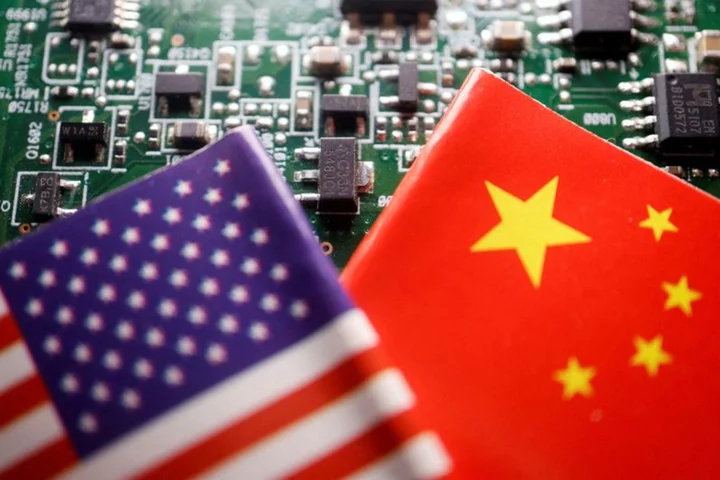
US firm AXT applying for permits after China restricts chipmaking exports
SHANGHAI U.S. semiconductor wafer maker AXT Inc said on Monday it would seek permits to keep exporting gallium
2023-07-04 11:18
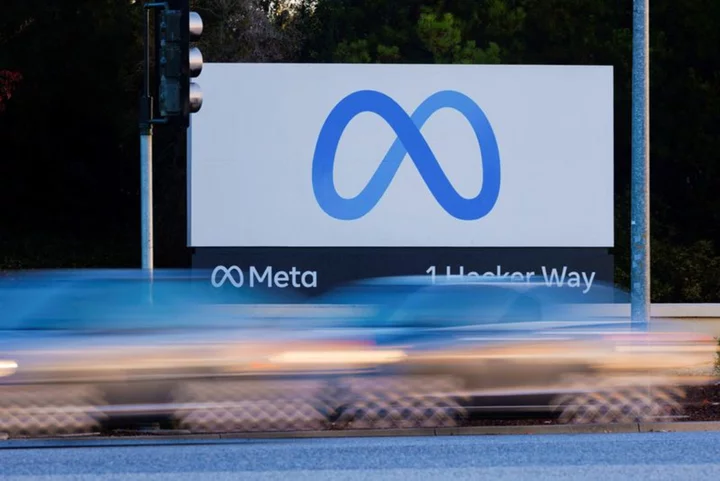
Meta to launch Twitter-like app Threads
Meta Platforms plans to launch a microblogging app, Threads, days after Twitter executive chair Elon Musk announced a
2023-07-04 10:27
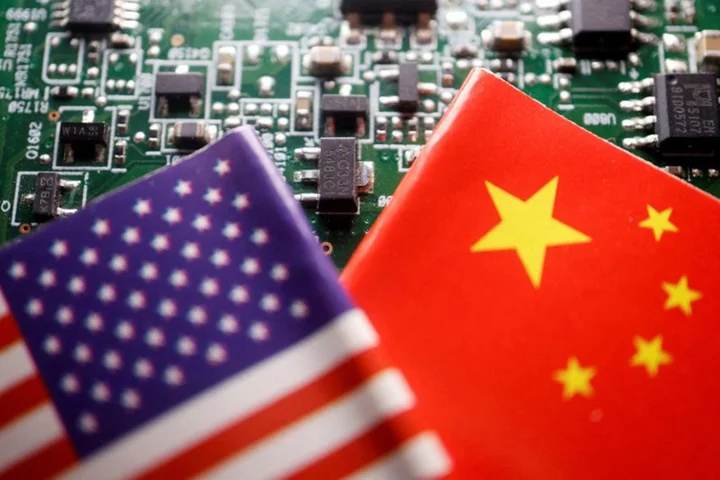
China to restrict exports of chipmaking materials as US mulls new curbs
BEIJING China will control exports of some metals widely used in the semiconductor industry, its commerce ministry announced
2023-07-04 09:25
You Might Like...

Comcast RISE, Initiative to Support and Strengthen Small Businesses, Awards 100 Memphians With Comprehensive Grant Packages

BBC reviews Russell Brand’s time at corporation as YouTube demonetises content

Morgan Stanley to launch AI chatbot to woo wealthy

Allison Transmission and Biffa Honored With Best Fleet Management Award for Partnership to Reduce Fuel Consumption and Emissions

Supreme Court avoids ruling on law shielding internet companies from being sued for what users post

eClinical Solutions Named a Leader in Everest Group’s Life Sciences Clinical Data and Analytics (D&A) Platforms PEAK Matrix® Assessment 2023

The Maize and Blue Embraces Green for the Recycle Bowl Showdown
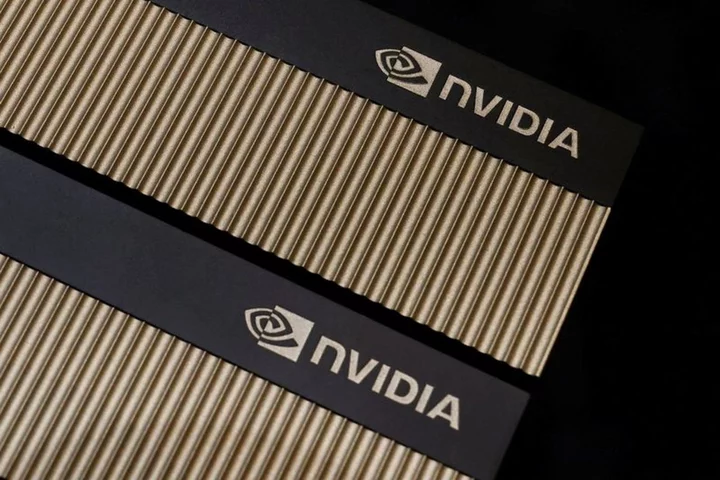
Nvidia's dominance in AI chips deters funding for startups
